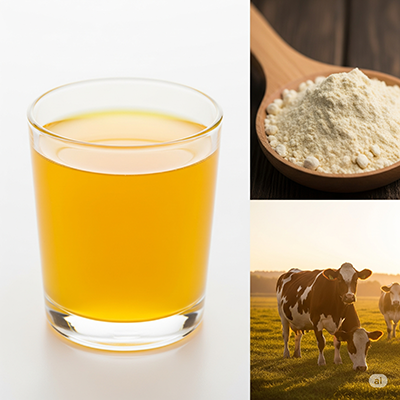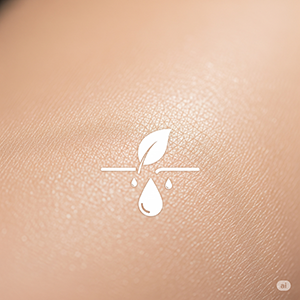Contents
- 1 What’s the Deal with Colostrum? Nature’s First Power-Up Drink Explained
- 2 So, What About Collagen? Your Body’s Main Support Beam
- 3 Colostrum vs Collagen: So, What’s the Actual Difference?
- 4 The Awesome Benefits of Colostrum: What It Can Do for You
- 5 The Amazing Benefits of Collagen: Why Your Body Loves It
- 6 Heads Up! Things to Keep in Mind & Possible Side Effects
- 7 Can You Take Colostrum and Collagen Together? Yep, and It Might Be Even Better!
Alright, let’s talk about colostrum and collagen. It feels like everywhere you look online, someone’s raving about one or the other, right? You see these posts promising you’ll look like you’re 20 again or that you’ll suddenly have an immune system like a superhero. So, what’s the actual scoop? Are they just the latest internet craze, or is there something to them?

Honestly, there’s a good reason they’re on everyone’s radar. Both colostrum and collagen pack some serious health perks because of what they’re made of. But here’s the thing – they’re not twins; they’re more like cousins, each with their personality and way of working. Figuring out the whole colostrum vs collagen situation – what makes each one special and how they might even be buddies in your body – is pretty important if you want to make smart choices for your health.
So, this guide is basically me, your friend, breaking down all the science-y stuff about colostrum and collagen into plain English. We’re going to look at where they come from, what they’re good for, any potential watch-outs, and help you figure out if one (or hey, maybe both!) would be a good addition to your daily routine. Let’s get a handle on why they’re so popular and help you find supplements that actually line up with what you’re trying to achieve for your health.
What’s the Deal with Colostrum? Nature’s First Power-Up Drink Explained
They call it “Liquid Gold,” and honestly, that’s not far off. Colostrum is that super special first milk animals produce right after giving birth, even before their regular milk starts flowing. Picture it as nature’s ultimate starter kit for newborns, absolutely crammed with everything they need to kick off life strong and healthy. Now, while all mammals whip up a batch of this stuff, the colostrum you find in supplements usually comes from our bovine buddies, cows. Turns out, it’s a lot like human colostrum, and the key components in it can do some pretty great things for us grown-ups too.

Cow colostrum is seriously loaded with goodies:
- Immune System Cheerleaders (Antibodies): These are like your body’s personal security detail – special proteins (like IgG) that go to town fighting off germs like bacteria and viruses. They give your immune system a natural, hefty nudge in the right direction. (If you want to get nerdy, sites like the NIH have more on how these immune proteins work.)
- Growth and Repair Crew: Colostrum has these natural growth factors that are all about helping cells grow, fix themselves up, and heal. This is a big deal for keeping all your body’s tissues in tip-top shape.
- Lactoferrin – The Multitasker: This protein is a bit of an overachiever. It fights germs, helps calm down inflammation (think soreness and swelling), and even gives your body a hand with absorbing iron. (You might find some neat articles calling it “Your Body’s Helper” if you look around.)
- Immune System Traffic Cops (PRPs): These clever little things help tell your immune system when to hit the gas and fight an infection, and when to pump the brakes and chill out.
- Vitamins and Minerals: Naturally, colostrum comes with a nice mix of important vitamins (A, E, K, and B vitamins, for example) and minerals (like calcium and zinc) that your body needs to stay healthy.
- Cellular Chit-Chat (Cytokines): These tiny proteins are like messengers for your immune system, helping to manage swelling and fight off infections.
- Extra Germ-Busting Power (Enzymes): These add another layer of defense against those not-so-friendly microbes.
Believe it or not, people have been using colostrum for its health benefits for literally thousands of years. It’s not some newfangled invention. And now, modern science is actually starting to back up what our ancestors figured out a long time ago. To make the supplements you see on shelves, colostrum is collected from cows pretty soon after they give birth. Then, it’s gently pasteurized – a process that makes it safe but keeps all the good stuff intact – and dried. Quality is everything here, folks. You want to look for colostrum from healthy, grass-fed cows that’s been processed carefully so it keeps all those wonderful benefits.
So, What About Collagen? Your Body’s Main Support Beam
If colostrum is like nature’s first bodyguard, then collagen is the main support beam that holds your whole body together. It’s actually the most common protein in your body. It’s a huge part of your skin, bones, tendons, ligaments, cartilage – even the lining of your gut! Think of it as the strong, yet flexible, “scaffolding” that gives your body its structure.
Your body actually makes a bunch of different types of collagens, but three of them are the big players:

- Type I Collagen: This is the most common type, and you’ll find it mostly in your skin, bones, and tendons. It’s what gives them strength and elasticity – think firm skin and tough tissues.
- Type II Collagen: This one hangs out mainly in cartilage, which is the cushiony stuff in your joints. So, supplements that are aimed at helping your joints often feature this type.
- Type III Collagen: You’ll often find this type alongside Type I. It helps support your muscles, organs, and arteries, and it’s also important for keeping your skin looking youthful.
Now, here’s the kicker: our bodies are pretty good at making collagen naturally, but we start to slow down production around our mid-20s. Ugh, right? And things like getting older, basking in the sun a bit too much (hello, Florida life!), smoking, and not eating the best diet can speed up that slowdown. When you have less collagen, you start to see those tell-tale signs like wrinkles, skin that’s not as firm as it used to be, creaky joints, and even weaker bones.
That’s where collagen supplements come into the picture. They’re usually made from animal sources:
- Bovine Collagen: This comes from cows (think skin and bones). It’s a good all-rounder for skin and general tissue support.
- Marine Collagen: This one’s from fish. People often pick it for skin health because the little pieces of collagen might be easier for your body to absorb.
- Chicken Collagen: This is usually from chicken cartilage and is often a go-to for joint health.
The best collagen supplements out there usually contain something called collagen peptides. All that means is that the big collagen protein has been broken down into tiny, easy-to-digest pieces. This makes it way easier for your body to absorb them and actually put them to good use. That’s why “collagen peptides” is generally what you want to look for on the label. (If you’re curious, university nutrition sites usually have simple explanations of how protein digestion works.)
Colostrum vs Collagen: So, What’s the Actual Difference?
Okay, so we know both colostrum and collagen are helpful supplements, but they really do have different main jobs in the body because of what they’re made of. Getting a handle on these differences is key to picking colostrum or collagen based on what your body needs.
Here’s a quick side-by-side:
| Colostrum | Collagen | |
| Main Job | Boosts immune system, helps gut health, supports growth | Provides structure, supports tissues, helps with anti-aging |
| Key Parts | Immune proteins (like IgG), growth factors, lactoferrin | Building block amino acids (like glycine, proline) |
| Comes From | First milk (usually from cows) | Animal connective tissues (cows, fish, chicken) |
| Top Benefits | Stronger immunity, better gut health, faster exercise recovery | Better skin elasticity, healthier joints, stronger bones & nails |
| How it Works | Mostly by sending signals & fighting germs | Mostly by providing building materials |
Now, even though they’re different, colostrum and collagen can sometimes be like two peas in a pod, working together and offering similar benefits:
- Helping Your Gut: This is a biggie where they overlap.
- Colostrum is great at helping to heal and “seal” your gut lining thanks to its immune proteins and growth factors. This is super important for stopping what some people call “leaky gut,” where things that shouldn’t get into your bloodstream do. (You can find some good articles on “Simple Steps for a Healthy Gut” if you look around.)
- Collagen chips in by providing the actual building blocks (those amino acids we talked about) that your body needs to repair and strengthen that gut lining. A strong gut lining is key for absorbing all the good nutrients from your food.
- Improving Your Skin’s Health:
- Colostrum has growth factors that can help your skin cells renew and repair themselves, which can definitely make your skin look better.
- Collagen is more direct – it literally builds up your skin’s structure, making it firmer, more hydrated, and helping to smooth out wrinkles.
- Muscle Repair & Growth (Especially if You’re Active):
- The growth factors in colostrum can help your muscles repair themselves and even grow. Plus, its anti-inflammatory bits can help you feel less ouchy after a workout.
- Collagen provides some of the amino acids needed for building muscle, and it also supports your joint health, which is obviously super important if you like to stay active.
So, as you can see, while colostrum and collagen aren’t the same thing, they can both lead you to better health, each in their own special way, and sometimes even by teaming up!
The Awesome Benefits of Colostrum: What It Can Do for You
Think of colostrum as your immune system’s best buddy and a hero for your gut health. Its special mix of natural compounds offers a ton of health perks, especially for your immune system and digestion.

- Supercharges Your Immune System: This is really where colostrum shines.
- Those immune proteins (especially IgG) we talked about? They’re like your body’s personal security team, always on the lookout to find and neutralize germs like bacteria and viruses. (The CDC has some good info on how vaccines, which also involve antibodies, work, if you’re interested.)
- Lactoferrin also jumps in by stopping germs from growing and helping your immune system work just right.
- Then there are those special balancers (PRPs) that help your immune system know when it’s time to fight hard and when it’s time to chill out. This might be really helpful if you deal with allergies or even some autoimmune issues – but definitely chat with your doctor about those things.
- A Huge Help for Your Gut Health: Colostrum is getting a lot of buzz for how good it is for your digestive system, and for good reason.
- Fixes “Leaky Gut”: The growth factors in colostrum are pros at helping to repair and strengthen your gut lining. Why does that matter? Well, if your gut lining is “leaky,” it can let stuff like undigested food and toxins sneak into your bloodstream, which can cause inflammation and a whole host of other problems. (If you’re wondering, “Could I have leaky gut?” there are articles out there that list signs to watch for.)
- Happy Gut Bacteria: Lactoferrin can also help kick out the bad bacteria in your gut while encouraging the good guys to flourish.
- Soothes Gut Inflammation: By making your gut lining stronger and helping to balance your immune system, colostrum can calm down that annoying gut irritation you might get from things like IBS or even from working out really hard.
- Boosts Athletic Performance & Speeds Up Recovery: It’s no wonder athletes are loving colostrum.
- Those growth factors can help your muscles grow and repair themselves faster after you’ve pushed them hard.
- Plus, its immune support is a big deal for athletes because really intense training can sometimes take a toll on your immune system.
- Some studies even suggest that colostrum might help with endurance and make you feel less sore after exercise. (Reputable sources like the American College of Sports Medicine often have articles on sports nutrition.)
- It’s Good for Your Skin Too: Yep, colostrum can even give your skin a little love.
- The growth factors in it can help your skin cells renew themselves, which is great for wound healing and can even improve your skin’s texture.
- And because it can help with inflammation, it might also soothe certain skin problems.
With such a wide range of benefits, it’s easy to see why colostrum is a fantastic choice for overall health and keeping your body strong.
The Amazing Benefits of Collagen: Why Your Body Loves It
Collagen is definitely famous for making skin look good – and let’s be honest, who doesn’t want that? – but because it’s such a key building block in your body, its benefits go way beyond just a youthful glow. Since our bodies naturally start making less collagen as we get older, taking a supplement can really help pick up the slack.

- Smoother, Firmer, More Hydrated Skin: This is the #1 reason so many people are fans of collagen.
- Taking those little collagen pieces (peptides) can actually make your skin bouncier and firmer. (The American Academy of Dermatology has some good info on skin aging if you want to learn more.)
- It also helps your skin hold onto moisture, which makes it look more hydrated and plumper.
- And get this – lots of studies have shown that regularly taking collagen can make those pesky fine lines and wrinkles less noticeable. (You can even find articles on “5 Easy Ways to Boost Your Collagen Naturally.”)
- Healthier Joints & Better Movement: If your joints have been feeling a bit stiff or sore, collagen might become your new best friend.
- Collagen (especially Type II) is super important for keeping your cartilage healthy – that’s the cushiony stuff that protects your joints.
- Taking it may help reduce joint pain that comes from everyday wear and tear (like in osteoarthritis) or from exercise.
- It can also make your joints more flexible and might even lower the risk of them wearing out over time.
- Stronger Bones: Surprise! Your bones need collagen too. It actually provides the framework that holds important minerals like calcium in place.
- Collagen peptides might help your body build more bone and improve your bone density. This is a big deal for lowering the risk of osteoporosis (which means weak bones), especially for women after menopause. (The National Osteoporosis Foundation is a great resource for bone health info.)
- Healthier Hair and Nails: While a lot of this is what people report from their own experience, many users say their hair and nails get stronger and grow better when they take collagen.
- It makes sense, though, because collagen has the building blocks for keratin, which is the main protein that makes up your hair and nails.
- It Supports Your Gut Health Too: Just like we mentioned before, collagen plays a role here as well.
- The amino acids in collagen (especially one called glycine) are important for repairing your gut lining and keeping it healthy.
All these benefits really show why collagen is so crucial for keeping your body strong, working like it should, and even looking youthful!
Heads Up! Things to Keep in Mind & Possible Side Effects
Okay, so both colostrum and collagen are generally safe for most folks when you use them the right way. But, like with anything you put in your body, there are a few things to think about:

For Colostrum:
- Dairy Annoyances: Since colostrum is a pre-milk product, if you have a full-blown milk allergy, you’ll want to steer clear. If you’re lactose intolerant, you might get a bit of an upset stomach (think gas, bloating – no fun!). The good news is that many colostrum products are made to have less lactose; just look for “low-lactose” on the label.
- Quality is Queen (or King!): This is a big one. Always try to choose colostrum that comes from grass-fed cows that weren’t given a bunch of hormones or antibiotics. Good brands will be upfront about how they get their colostrum and how they process it (you want to see words like “gentle processing”).
- Mild Tummy Grumbles: Some people feel a little bit queasy when they first start taking colostrum, but this usually goes away as your body gets used to it.
- How Much Should I Take?: The amount can vary. Your best bet is to follow the directions on the label or have a chat with a healthcare professional.
For Collagen:
- Usually Pretty Chill: Collagen peptides are known for being very safe. Side effects are rare, and if they do happen, they’re usually mild.
- Feeling a Bit Full: Some people might feel a little overly full or have a minor digestive hiccup, especially if they take large doses.
- Watch Out for Fish Allergies: If you know you’re allergic to fish, you’ll want to avoid marine collagen (which comes from fish). Stick to the kinds made from cows or chickens instead.
- The Taste Test: Some unflavored collagen powders can have a little bit of a taste or smell. This is usually less of a problem with high-quality ones, and you can almost always hide it in a smoothie or your coffee.
- Getting the Dose Right: Common doses are usually somewhere between 2.5 to 15 grams a day. People often see skin benefits with 2.5-10 grams, while if you’re focusing on joint or bone health, you might need a bit more, like 10-15 grams. (Sometimes you can find helpful articles like “What’s the Right Collagen Dose for Me?”)
Good Advice for Both:
- Go for Good Quality: Look for brands that do something called third-party testing. That just means an independent lab checked them to make sure they’re pure and safe.
- Chat with Your Doctor: This is super important if you’re pregnant, nursing, have any ongoing health issues (especially autoimmune problems if you’re thinking about colostrum), or if you take any medications. Supplements can sometimes mess with medicines, so it’s always better to be safe than sorry.
- Start Slow and Steady: When you start any new supplement, it’s usually a good idea to begin with a lower dose just to see how your body handles it.
- Patience, Grasshopper: You usually won’t see amazing results overnight. You generally need to take them consistently for several weeks or even months to really notice a difference.
Can You Take Colostrum and Collagen Together? Yep, and It Might Be Even Better!
This is a question I get a lot. Since they have different but kind of complementary benefits, people wonder, “Can I take colostrum and collagen at the same time?” And for most healthy folks, the answer is a big YES! In fact, taking them together might even give you better results.
Now, we still need more studies that look specifically at what happens when you take them together, but based on what we know about how each one works, here’s how they might team up to help you out:
- Supercharged Gut Health: This is where they could really shine together.
- Colostrum helps heal up your gut lining and fights off bad germs.
- Collagen provides the actual building blocks to repair and strengthen that lining.
- So, together, they’re like a powerful one-two punch for getting your gut healthier.
- Even Better Skin Results:
- Collagen builds up your skin’s structure, making it firmer and more hydrated.
- Colostrum’s growth factors help your skin cells renew themselves.
- The combo could mean you see even bigger improvements in your skin.
- Extra Help for Athletes:
- Colostrum supports your immune system and helps your muscles repair.
- Collagen helps your joints and provides those muscle-building amino acids.
- Together, they could help athletes recover faster and stay stronger.
- Overall Anti-Aging and Wellness: By supporting both your immune system (with colostrum) and your body’s structure (with collagen), taking both could offer broader anti-aging and health support from a couple of different angles.
So, Who Might Really Benefit from Taking Both?
- People who are dealing with some serious gut health concerns (like leaky gut or IBS).
- Athletes who want the best possible recovery and performance.
- Anyone who’s looking for all-around anti-aging support – for their skin and their internal health.
- Those who want to give their immune system a boost while also supporting their joints and tissues.
Adding Both to Your Daily Routine:
It’s usually perfectly fine to take them together. A lot of people just mix both powders into their morning smoothie or coffee. Easy peasy.
- Timing is Flexible: Some people like to take colostrum on an empty stomach because they feel it helps their body absorb the immune parts better, but that’s not a hard and fast rule. Collagen can pretty much be taken anytime.
- Stick to the Recommended Dosage: Just follow the dose instructions on the label for each supplement. You don’t usually need to take less of one just because you’re taking the other, unless your doctor specifically tells you to.
As always, pay attention to how your body feels, and if you have any questions about combining supplements, have a quick chat with your healthcare provider.
Colostrum or Collagen: How to Pick the Right One for You
Alright, so deciding between colostrum vs collagen, or figuring out if you should just take both, really comes down to what you’re hoping to achieve for your health. Here’s a simple guide to help you sort it out:
You Might Lean Towards Colostrum if You Want To:
- Boost Your Immune System Big Time: If you feel like you’re always catching colds, or you just want to give your body’s defenses a serious upgrade. Colostrum is packed with those immune-boosting proteins we talked about.
- Get Your Gut Health in Order: If you have tummy troubles like leaky gut or IBS. Colostrum is known for helping to heal the gut lining.
- Recover Faster from Your Workouts: If you’re an athlete and you want to improve your recovery time, build muscle, and keep your immune system strong while you’re training hard.
- Get Some Support for Autoimmune Issues (But Definitely Talk to Your Doctor First!): Colostrum might help balance the immune system, which could be helpful for some autoimmune conditions, but this is something you absolutely need to discuss with your doctor.
You Might Go for Collagen if Your Main Goals Are To:
- Improve Your Skin: If you’re looking for firmer, more hydrated skin with fewer wrinkles.
- Support Your Joints: If you deal with stiff or sore joints, or you just want to protect your cartilage and keep moving easily.
- Strengthen Your Hair, Nails, and Bones: If you want healthier hair and nails, or if you’re looking to support your bone density.
- Help with General Tissue Repair: Remember, collagen is a key building block for so many parts of your body.
And You Might Want to Consider Taking Both Colostrum AND Collagen if You:
- Want All-Around Anti-Aging and Wellness Support: This way, you’re covering both your immune and cellular health (with colostrum) and your body’s structure and appearance (with collagen).
- Have Goals That Line Up with Both: For instance, an athlete might want colostrum for their immune system and recovery, and collagen for their joints.
- Really Want to Maximize Your Gut Health: The combination of colostrum’s healing and immune-balancing effects with collagen’s building blocks can be a real power duo for your gut.
- Are Looking for Extra Skin Benefits: The growth factors in colostrum plus the structural support from collagen could mean even better skin.
Think about what your main health priorities are right now. And hey, it’s totally okay to try one, see how it makes you feel, and then think about adding the other one or even switching if your goals change down the road.
Your Health Journey, Your Choice!

So, there you have it. In the sometimes confusing world of health supplements, colostrum and collagen are definitely two that stand out from the crowd, each offering its own unique and powerful benefits. Colostrum, that “first food” from nature, is fantastic for your immune system and gut health, mostly thanks to all those special proteins and growth factors it has. And collagen, your body’s main building block, is a rockstar for keeping your skin looking youthful, your joints healthy, your bones strong, and just generally supporting your body’s overall structure.
Now, even though we’ve been talking about “colostrum vs collagen,” it doesn’t mean you always have to pick just one. Like we’ve seen, their benefits can actually work really well together. For a lot of people, taking both can be a super smart way to give their overall health a nice boost.
But here’s a little reality check: supplements aren’t magic pills. Shocker, I know! They work best when they’re part of an overall healthy lifestyle – you know, eating a good diet, getting regular exercise, making sure you get enough sleep, and trying to keep stress in check. Also, and this is a big one, the quality of the supplement you choose really, really matters. So, always try to go with good, trusted brands.
Hopefully, this guide has given you some good food for thought about your own health goals. Is boosting your immunity and keeping your gut happy your top priority right now? Colostrum might be your best bet. More worried about skin aging and keeping your joints feeling good? Collagen could be the answer. Or maybe you’re looking for that wide-ranging, do-it-all support? Then hey, both might be perfect for you!
The most important thing is to take charge of your own health by making informed choices. Listen to what your body is telling you, do a little homework (like reading this!), and have a chat with a healthcare professional you trust – like your doctor or a dietitian – about whether colostrum, collagen, or both, are a good fit for you. Your path to feeling healthier and more vibrant is all your own, and these supplements can be really great helpers along the way.
HEALTH DISCLAIMER: The information on this website is for educational uses only and is not a substitute for professional medical advice. Always consult an authorized healthcare provider for any health concerns before using any herbal or natural remedy. We do not establish, treat, cure, or prevent any disease. Reliance on any material from this website is solely at your own risk. We are not responsible for any adverse effects resulting from the use of information or products mentioned on this website.
